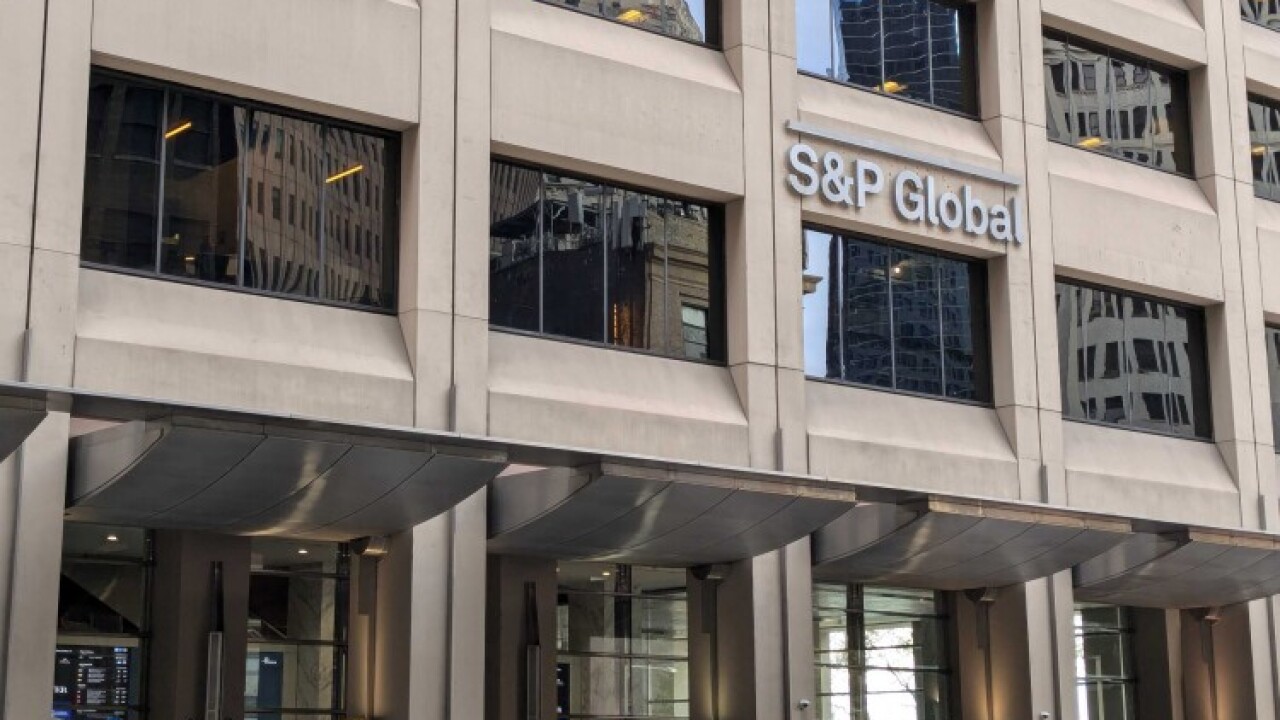The framework for new infrastructure unveiled Wednesday by House Democrats uses restoration of Build America Bonds and advance refunding for municipal bonds as a central financing mechanism.
The $760 billion, five-year plan also calls for expanding qualified private activity bonds, the reinstatement of tax credit bonds, an undetermined increase in airport passenger facility charges and $40 billion more for State Revolving Funds that finance water projects.
The package covers surface transportation projects, waterways, ports, airports, broadband and water projects.

House Speaker Nancy Pelosi, D-Calif., said the package encompasses about $1.5 trillion of the $2 trillion in infrastructure spending that President Trump suggested last year.
Pelosi said future announcements involving the remaining parts of the $2 trillion will cover educational facilities and housing.
“These are not message bills,” said Pelosi, emphasizing that Democrats want support from the Trump administration and congressional Republicans.
She said the Democrats are seeking a deal analogous to the one they made with the Trump administration on amendments to U.S.-Mexico-Canada trade agreement, which the president signed into law Wednesday.
House Ways and Means Committee Chairman Richard Neal, D-Mass., who joined Pelosi in making the announcement, said the financing will not be finalized until an agreement is reached with the administration.
“I want something really big and I think Build America Bonds ought to be a place to start,” said Neal.
Neal described BABs as “the most successful part” of the 2009 American Recovery and Reinvestment Act enacted by Congress as an economic stimulus during the Great Recession.
BABs carry a 35% direct-pay federal subsidy to issuers except that they are subject to mandatory reductions under budget sequestration. Neal said those cuts were “poisonous” and should be left out of any package.
A fact sheet distributed by House Democrats indicated that the BABs proposal would remove sequestration.
“More than $181 billion in Build America Bonds were issued in the two years they were available, supporting nearly 2,300 projects around the country,” the fact sheet said.
“Reinstating Build America Bonds and other debt financing mechanisms can create efficiencies in infrastructure investment for a wide range of public-private partnerships, particularly when their effectiveness is not diminished by sequestration,” the fact sheet said.
Bond Dealers of America spokesman Brett Bolton said his organization’s reaction was positive to the overall package and is pleased that it includes the restoration of advance refundings.
“Clearly this is not legislative language, but the initial read is that House Ways and Means is taking the infrastructure bill very seriously,” Bolton said. “They emphasize bond financing, which has long worked for the United States of America and is a great starting place to help dig out of the national infrastructure deficit.”
Neal said he last spoke to Treasury Secretary Steven Mnuchin about the package when they had lunch in the U.S. Capitol to discuss the U.S.-Mexico-Canada trade deal.
House Transportation and Infrastructure Committee Chairman Peter DeFazio, D-Ore., said he expects the surface transportation part of the package to be financed with “some combination of user fees and bonding.”
DeFazio said in a hallway after Wednesday’s the press conference that the amount that airport PFCs will be increased has not yet been determined.
About 31% of the revenue raised from PFCs is used for debt service on bonds that have been issued for capital improvements, according to the nonpartisan Congressional Research Service. PFC revenues are heavily used for landside projects, such as terminals and transit systems on airport property, and for interest payments.
The sheet also laid out these provisions:
— Qualified PABs would be used to expand “the national volume cap for qualified highway or surface freight transfer facilities to allow for greater investment in surface transportation public-private partnerships.”
— Restoration of advance refunding would restore “state and local governments’ ability to invest in infrastructure projects with favorable financing terms by allowing them to use one bond’s proceeds to replace existing bonds.”
— Tax credit bonds would provide “a taxable bond that state and local governments can use to finance surface transportation projects while the bondholder receives a tax credit, rather than tax-free interest like municipal bonds.”
— Tax credits would be used to expand “existing infrastructure tax credits and creates new credits to improve all sectors of infrastructure investment, including community development projects driven by the new markets tax credit, housing investments incentivized by the low-income housing tax credit, and community revitalization through the rehabilitation credit for historic buildings.”
— Green energy provisions would build on “the committee’s work on green energy and efficiency, by providing incentives for renewable energy projects and new technologies to modernize the electric grid, improve resiliency, and further accelerate the transition to a clean energy economy.”





